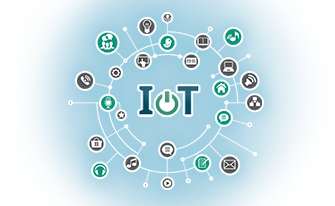IOTECHA ANNOUNCES IOT.ON™ SDK VERSION 2.0 FOR THE STMICROELECTRONICS ST2100 SYSTEM-ON-CHIP
January 31, 2018
The SDK unlocks the full potential of STMicroelectronics’ ST2100 SoC and the powerline communication technology embedded in it
IoTecha Corp., a provider of advanced Smart Charging and connectivity solutions for the Electric Vehicle charging industry and a leader in powerline communication (PLC) technology for Industrial IoT applications, is proud to announce IoT.ON™ SDK Version 2.0 for the STMicroelectronics ST2100 SoC. Members of IoTecha’s team developed HomePlugTM PLC technology prior to becoming a part of the ST family and helped to build the ST2100 SoC during their tenure at ST.
The new version of the SDK is the result of the research and development work undertaken by IoTecha during the last two years with the goal of realizing the full potential of the ST2100 SoC and the PLC capabilities of the SoC.
“We are very proud of the work that has been embodied in this new SDK,” stated Oleg Logvinov, CEO of IoTecha. “It not only makes the ST2100 easier to use, it creates a new benchmark for the robustness of highspeed powerline communication in Industrial IoT applications. This achievement would not have been possible without the support of the team at the Digital Factory Division of Siemens AG.”
The code built using this new SDK has already been tested in real-world conditions. These tests provided valuable insights during the development phase and confirmed the readiness of the SDK for Industrial IoT applications. “For our use case in industrial Power Line Communication (PROFINET via powerline), we had to fulfill very tough requirements in terms of stability, reliability and availability,” explained Ernst Pfitzinger, Siemens AG, Digital Factory Division, Factory Automation. “With the excellent support of IoTecha we have built the technology for industrial applications which is now the benchmark in the market.”
The new SDK includes the following major elements:
- Critical bug fixes and stability improvements that enable reliable operation in the most challenging industrial environments
- New critical error recovery path – system errors that used to result in a complete system reset now trigger a soft restart that allows the system to recover in less than 5 mS, increasing system stability in extreme conditions
- Performance enhancements related to optimized transmission scheduling
- Support for Ethernet frames up to 8kB
- Several additional QoS and tunable modem configuration parameters
- Updated userland compilation toolchain and glibc supporting the latest C++ standards
- Updated buildroot userland environment adding many more easy-to-include features and applications.
- Single build and deployment environment for Linux-based applications – With the updated SDK, a complete build from Linux kernel to user applications can be managed with one step, easing integration and deployment
- Redundant RootFS – Now the SDK supports dual RootFS to allow for reliable in-field updates with fallback
- NAND boot support – Serial FLASH is no longer required, the system can now boot directly from NAND, saving on BOM.
- Bootloader support for NAND and auto-selection of redundant Linux RootFS
